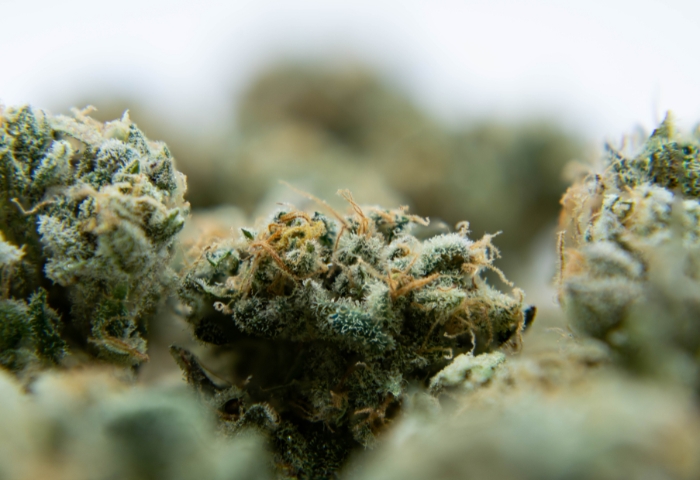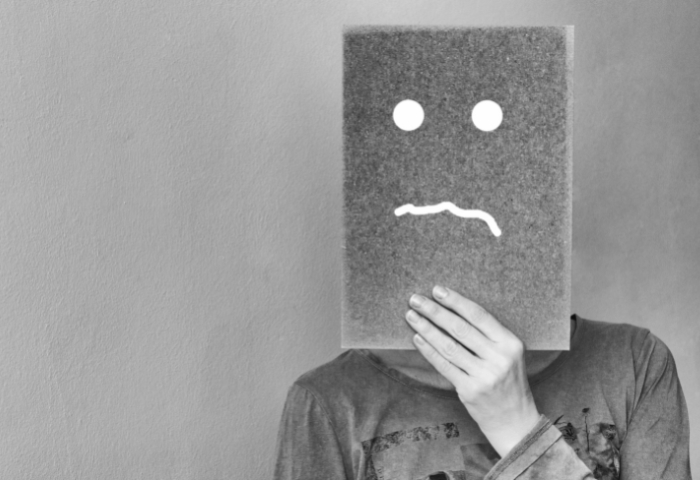Medical marijuana has gained popularity due to cannabis decriminalization and increased clinical trials. While the stigma of cannabis use is wearing off, more people are using marijuana to improve their mental health.
Depression and marijuana is a complex subject. For some people suffering from depression, cannabis is a glimmer of hope, helping them get through the day. However, other people report that marijuana increases their depression and anxiety.
Cannabis is a complex plant with hundreds of chemical compounds. On top of the intricate chemical make-up of the plant, our bodies are even more complicated. So we’ve decided to create a post to cover depression and marijuana; we will give you all the information you need to determine if it is a viable treatment for your specific health conditions.
Before we get into the controversial treatment for depression, it’s important to state that you should obtain professional medical advice before making any decisions regarding your mental health.

Recreational Marijuana Vs. Medical Marijuana
Medical marijuana is permitted in 36 states in the US. However, the Drug Enforcement Administration still considers marijuana a schedule one drug, so you should be cautious of state legislators before obtaining a medical cannabis license.
The difference between recreational and medical marijuana is usually the chemical compounds. Most medical cannabis strains have a high concentration of CBD and low THC levels. Recreational cannabis is meant to be enjoyed not for medicinal benefits, but many users will say it helps them deal with mental health issues.
Depression and Marijuana
Depression is an extremely difficult disorder to treat and perform clinical trials. Psychiatric conditions require an incredible amount of research to offer clear evidence as a treatment.
Depression and marijuana are complicated. Many cannabis users report increasing issues like anxiety and suicidal thoughts after consuming large amounts of THC. Every person’s risk is different and will react to medical marijuana separately.
Medical professionals recommend using medical marijuana with low amounts of THC to limit issues like depression and anxiety.
Can Medical Marijuana Use Treat Depression?
We are still in the beginning stages of understanding how the chemical compounds in marijuana can provide us benefits. However, researchers have found that the mechanism of relief with THC and CBD does exist for mental health conditions. Experts believe that our cannabinoids receptors play a significant role in mitigating chemicals that help us deal with adverse events that lead to depression and anxiety.
Research on Depression and Cannabis Use
Sadly, most research done regarding cannabis is centered around finding the adverse side effects. Even after cannabis legalization across the globe, more research is being done to see the negative consequences of marijuana substance abuse.
However, more clinical trials are being conducted about medical marijuana than ever before. One of the most recent studies observed over 300 cannabis users to assess their depression, anxiety, and sleep conditions.
The researchers from the study concluded that “Medicinal cannabis use may reduce anxiety and depressive symptoms in clinically anxious and depressed populations. However, future placebo-controlled studies are necessary to replicate these findings and to determine the route of administration, dose, and product formulation characteristics to optimize clinical outcomes.”
More Research is Needed
Most cannabis research will conclude that we need more studies. The complexities of chemical composition and administration methods make marijuana extremely challenging for the cannabis research community.
How to Use Medical Marijuana for Depression
Doctors specializing in medical marijuana typically suggest using high CBD strains to treat various conditions. You can also experiment with balanced 1:1 CBD:THC or products with more THC than CBD. Because we don’t have an established framework, it is up to the user to find the chemical composition that agrees with their body.
We suggest trying different concentrations and administration methods if you are interested in trying cannabis for mental health.

Potential Side Effects of Medical Cannabis
While the research has historically been dedicated to finding the dangerous side effects of cannabis use, and there has been no shortage of fear-mongering disinformation, there are reasons to be concerned.
Everyone has a different experience with marijuana and should be cautious, especially people with a history of mental illness.
Drug Abuse
Cannabis can lead to abuse. While many people will say that marijuana isn’t addictive, the CDC reports that “another study estimated that people who use cannabis have about a 10% likelihood of becoming addicted. In addition, the risk of developing marijuana use disorder is greater in people who start using marijuana during youth or adolescence and who use marijuana more frequently.”
While the drug dependency rate is low, it isn’t zero. Heavy users also have a more likely chance of developing a habit and leading to substance abuse.
Using Other Drugs
For decades critics of marijuana have called it a ‘gateway drug.’ While this can be proven anecdotally, there aren’t any reliable statistics to back the claim. Marijuana does, however, increase the effects of drugs like alcohol and opioids. Therefore, we highly recommend avoiding mixing cannabis with other drugs.
Depressive Symptoms
Some cannabis users report an increase in depressive symptoms. Again, you should proceed with caution if you try marijuana for depression for the first time.
Can Trigger Schizophrenia
Users susceptible to schizophrenic episodes should avoid cannabis and all other drugs. Altering the chemical composition in the brain can trigger schizophrenia if you have these events.
Suicidal Thoughts
In rare cases, users have reported having suicidal thoughts, one of the side effects of depression and anxiety.
Additional Applications of Medical Marijuana
Marijuana use can be used for a variety of conditions. It’s essential to do your research and separate the known benefits of CBD and THC. Once you know the difference, you can plan your cannabis chemical composition to help specific conditions more accurately.
Other Mental Health Conditions
CBD is showing promise as a treatment for anxiety. A study conducted in Colorado found that over 70% of participants reported improved anxiety scores after one month of regular CBD use.
Pure CBD has shown promise in treating anxiety, but the industry leans on using low amounts of THC with CBD, also known as full-spectrum cannabinoid hemp. The idea that cannabinoids work together is a phenomenon called ‘the entourage effect.’

Sleep Problems
The same study that found users could help their anxiety using CBD also showed improved sleep scores. After one month, over 75% of the participants reported getting better sleep.
Using CBD and THC are commonly used as a natural way to improve sleep. However, the combination is up to the user. Many people don’t want to feel the grogginess the following day and choose to use low amounts of THC to get better sleep.
Chronic Pain
Chronic pain is the most common use of medical marijuana. While we don’t have sufficient evidence to say definitively, there are thousands of anecdotal pieces of evidence that suggest THC and CBD can be used to treat chronic pain.
Seniors are the most likely to benefit from medical marijuana as a treatment for chronic pain. However, they are the demographic least likely to use cannabis to treat pain.
Multiple Sclerosis
Nearly a million Americans are living with Multiple Sclerosis. Medical marijuana has been used for decades to provide relief, but more research is desperately needed. Thankfully, a large-scale clinical trial is underway in Canada. The study aims to find:
- The efficacy of THC and CBD, alone and in combination, as add-on therapies to the current standard treatments for relief of spasticity and other symptoms in PwMS (muscle spasms and stiffness);
- Assess the tolerability profile of THC and CBD, alone and in combination, when used in PwMS;
- Identify the mechanisms underlying such therapeutic and adverse effects of different types of cannabis-based medicines in PwMS,
Weight Gain
CBD and THC work adversely in our endocannabinoid system. So while marijuana is notorious for delivering the munchies, CBD use can actually control weight gain.
The endocannabinoid system regulates appetite, and cannabis compounds can be used in different ways to take advantage of this mechanism.
Cancer patients who struggle to eat find that THC can boost their appetite. At the same time, people struggling with overeating have found that consistent CBD use leads to less snacking and cravings.
Mood Boosting Benefits of Marijuana Use
THC and CBD are both believed to improve mood. Endocannabinoid receptors regulate our mood, helping with mental health issues and improving general well-being. Mood boosting benefits can be experienced almost immediately after using THC; conversely, it takes regular dosing to feel the effects of CBD.
Marijuana Use and Depression – The Future of Mental Health Treatments
The future of medical marijuana is still uncertain. Clinical trials are very complicated, and every national institute like the FDA has a rigorous standard to approve new drugs, especially for mental health treatments.
While more research is needed before the widespread adoption of cannabis for depression, we are well on our way to building the framework that could change the lives of millions of people.


